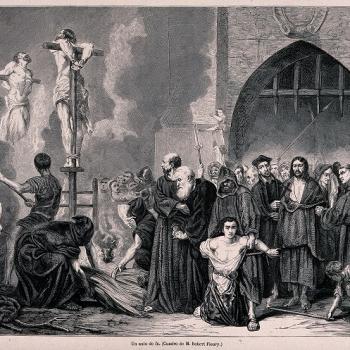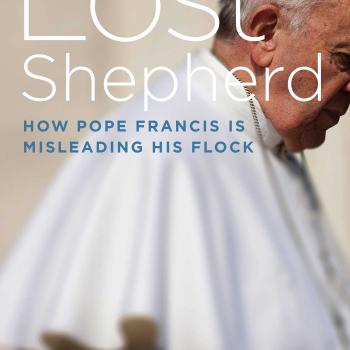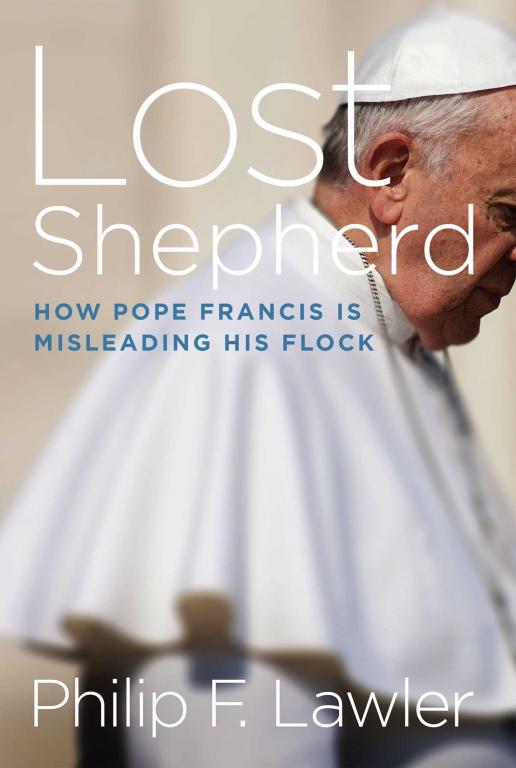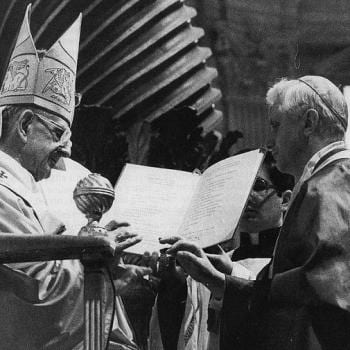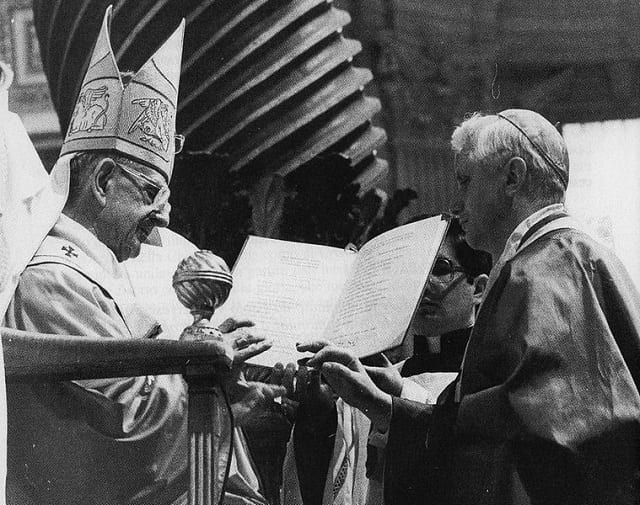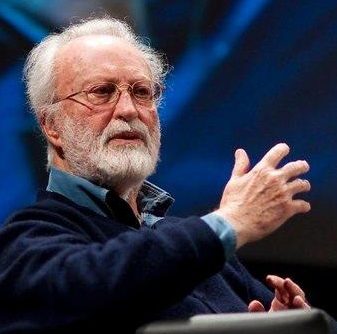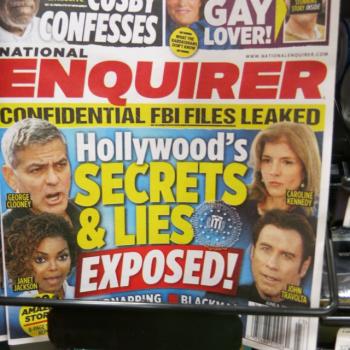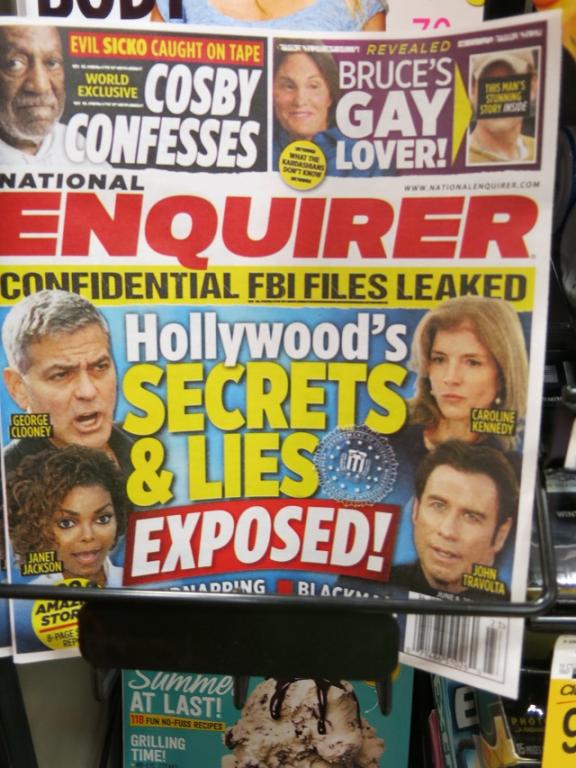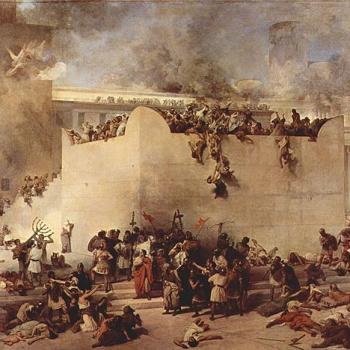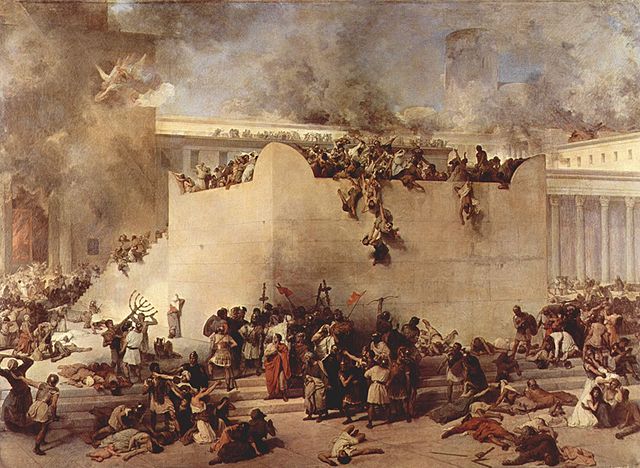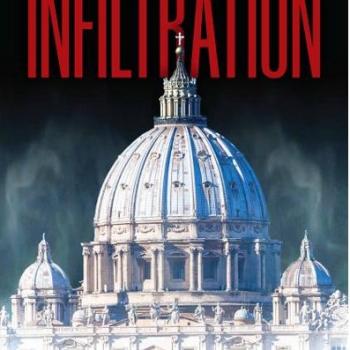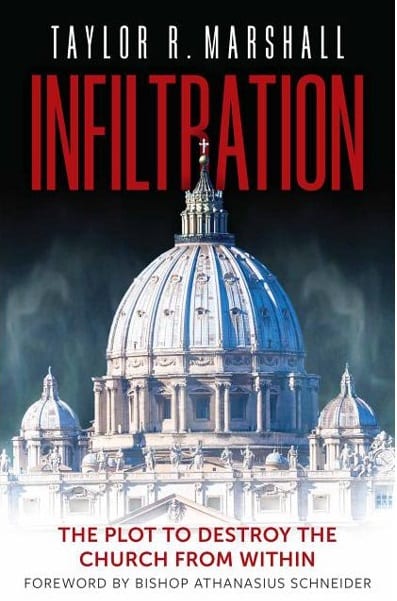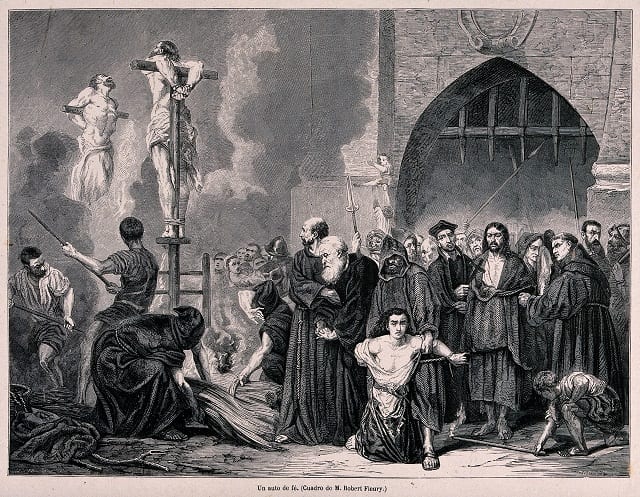
Phil Lawler is the author of Lost Shepherd: How Pope Francis is Misleading His Flock (2018). One can tell from the title that Phil was making some pretty serious accusations. In my many critiques of it (perhaps more than from any other Catholic), he seemed to be declaring that Pope Francis was a heretic: at least in a vague, broad way. For example, in the Introduction, he stated that Pope Francis is:
. . . leading the Church away from the ancient sources of the Faith. . . . a source of division. . . . radical nature of the program that he is relentlessly advancing. . . . encouraged beliefs and practices that are incompatible with the prior teachings of the Church. If that complaint is justified, he has violated the sacred trust that is given to Peter’s successors. . . . a Roman pontiff who disregarded so easily what the Church has always taught and believed and practiced on such bedrock issues as the nature of marriage and of the Eucharist . . . a danger to the Faith . . .
That sure sounds to me (as an apologist) that he believed the pope was guilty of some sort of heresy (and entails even judgments of his motivations and the inner workings of his heart and mind). Wouldn’t you agree? In chapter two, p. 20, Lawler opined that “Francis . . . appeared to cast doubt on the existence of hell.” That would most certainly be heresy, if true, as the existence of hell is a de fide dogma that can’t be doubted.
In his chapter six, writing in the context of reception of the Holy Eucharist, Lawler contended that the pope “has deliberately avoided the exercise of his authority, giving the impression that formal Church teachings and laws do not really matter and can safely be ignored.”
If things like these (assuming for the sake of argument that they are accurate) aren’t heresy, they certainly are an excellent impression of same.
Yet when push came to shove, and Lawler had to agree or disagree with the many “statements” or “rebukes” put out by overwhelmingly reactionary signees, Phil Lawler essentially argued that we don’t know for sure whether the pope is a heretic and so we shouldn’t claim that he is. To me, this is a very positive development in his thinking. Let’s look at what he stated in this regard. On 3 May 2019, Phil wrote the article, “Is the Pope a heretic? The danger of asking the wrong question” (Catholic Culture), in which he wrote:
Was it sheer frustration that prompted a group of Catholic scholars to issue their open letter charging Pope Francis with heresy? If so, I can understand. I share the frustration. The silence of the Catholic hierarchy, in the face of confusion that is tearing the Church apart, is maddening.
. . . Nevertheless I fear that this letter does more harm than good, compounding the problem that loyal Catholics now face.
Well, is the Pope a heretic? I am not qualified to address that question. . . . Who could make the authoritative judgment that the Pope had fallen into heresy and therefore lost his authority? Certainly not a handful of independent scholars.
To their credit, the authors of the Easter Letter recognize the need for an authoritative statement, for a judgment by the world’s bishops. But if that is their goal, should they not have approached sympathetic bishops privately, quietly, to make their case? . . .
Peter Kwasniewski, one of the principal authors of the letter, now says that the document lists “instances of heresy that cannot be denied.” This, I’m afraid, is a demonstrably false statement. The “instances of heresy” mentioned in the letter have been denied, and repeatedly. The authors of the letter are convinced of their own arguments, but they have not convinced others. In fact they have not convinced me, and if they cannot persuade a sympathetic reader, they are very unlikely to convince a skeptical world. . . .
It will be easier, now, to classify anyone who challenges the Pope as a member of the same group that is making charges of heresy. Consequently life will be more difficult for those of us who are not calling for the deposition of the Roman Pontiff, but simply for a clarification of Church teaching. . . .
Now, by asking bishops to do something that none of them is likely to do, the authors of the Easter Letter have given timid bishops one more excuse for their silence. Pleas for clarity can now conveniently be lumped together with charges of heresy, as evidence of “extremism.”
In a follow-up article of 16 May 2019, Phil added: “the authors of the open letter made a tactical mistake, because the charge of heresy is very difficult to prove . . .”
On 31 May 2019, Phil objected to the “unjust” banishment of John Rist, — one of the signees of the notorious “Easter Letter” — from the Patristic Institute Augustinianum. Phil says that “Rist’s orthodoxy is not in question” and that “He is being punished for questioning the orthodoxy of another prominent figure. And since the target of his criticism is the Bishop of Rome, a special rule applies.” Indeed it does. To his credit, Phil (almost unwittingly) illustrates the legitimacy of Rist’s censure:
In that 2018 document Veritatis Gaudium, amending the rules of the pontifical faculties, Pope Francis stipulated that the professors must be loyal to the Church. The wording of the relevant clause (26.2) is noteworthy:
Those who teach matters touching on faith and morals are to be conscious of their duty to carry out their work in full communion with the authentic Magisterium of the Church, above all, with that of the Roman Pontiff. [emphasis {– Phil’s own –} added]
It looks to me like the action was perfectly justified, when we examine some of the outrageous things Rist has stated. For example:
I regard this papacy as a disaster and Bergoglio as possibly — because of his tampering with established doctrine — as possibly the worst pope we have ever had. . . .*The whole thing amounts to a heresy on the scale of the Arian heresy. That took some 60 years to work out. I fear that this set of moral heresies may last even longer. (“Scholar stumps Cardinal Cupich, asks if Pope’s ‘paradigm shift’ means ‘radical’ doctrinal change,” Dorothy Cummings McLean, LifeSite News, 2-15-18)
Infiltration is certainly an all-time classic…in the category of conspiracy theories.
It is hard to know where to begin a review, since discussing the book is rather like pointing out the absurdity of a crazy relative who always has an answer to every objection, pulled out of a world that exists only in his head. The fundamental stupidity of the book arises from the author’s felt need to explain the normal human condition in terms of a series of conspiracies. Developments and ideas the author considers bad—from the loss of the Papal States through the Second Vatican Council and right up to the current pontificate—are ascribed to the secret machinations of the Masons, the Modernists, the Communists, the gays, the St. Galen Mafia, you name it.
The technique is reminiscent of McCarthyism in America in the 1950s. If you have an idea that is similar to one held by one of the conspiratorial groups, it is a sure sign of the effectiveness of the conspiracy. If you happen to know someone in one of the conspiratorial groups, it is a sure sign that you have been successfully recruited. . . .
Infiltration, as I have indicated, displays an understanding of human history typical of your mad relative. What else can we expect from a book which makes wild assertions about plots, conspiracies and complex theological or institutional problems, each of which the author claims to treat decisively and beyond doubt in roughly three to five pages! Moreover, Marshall seems not even to realize that culture cannot be explained by conspiracy, and conspiracy cannot be proved by correlation. (“Infiltration: An idiot’s guide to the problems of the Church”, Catholic Culture, 19 May 2019)
Pope Francis and Civil Unions: Critical Context (Mike Lewis, Where Peter Is, 10-22-20)*Those Pope Francis quotes: Video editing and media controversy” (Dr. Pedro Gabriel, Where Peter Is, 10-22-20)*Pope Francis’s Words on Civil Unions Distorted by Editing (Fr. Matthew Schneider, Through Catholic Lenses, 10-22-20)*Has Pope Francis changed Church teaching on same-sex civil unions? (Dawn Eden Goldstein & Robert Fastiggi, Where Peter Is, 10-22-20)*Full Text Proves Francis Meant Civil Unions INSTEAD OF “Gay Marriage” (Fr. Matthew Schneider, Through Catholic Lenses, 10-24-20)*Vatican breaks silence on Pope Francis’ gay civil union remarks (Vatican says pope’s comments taken out of context) (Fox News / Associated Press, 11-2-20)*Nuncio Further Clarifies Pope on Civil Unions (Fr. Matthew Schneider, Through Catholic Lenses, 11-5-20)*Has Pope Francis changed Church’s doctrine on Homosexuality? (Francis Figuero, The Reproach of Christ, 10-22-20)


